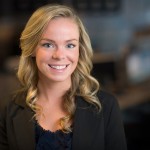Health Column: Breast cancer — who is at risk?

A woman born today has roughly a one in eight chance of being diagnosed with breast cancer sometime during her life.
On the other hand, the chance that a woman will never have breast cancer is 87.6 percent, according to the National Cancer Institute.
But understanding one’s risk isn’t as simple as reading a statistic.
Dr. Brian O’Hea, chief of Stony Brook Medicine’s breast and oncologic surgery division — who will host an informational lecture next week about the disease in honor of Breast Cancer Awareness Month — said genetics are one of the tools women and men can use to better understand their risk of developing the disease.
Melissa, a 45-year-old from Cutchogue who declined to give her last name for insurance reasons, said she used her family’s history to put herself in control when it came to understanding her risk for breast cancer.
She is known as a “previvor” — someone who eliminated the risk of being diagnosed with cancer with proactive measures, making her a survivor from the start.
“Genetics, your family medical history, these are tools that we can embrace,” said Melissa, who explained that she wanted to share her experience with others to raise awareness.
Three people in Melissa’s father’s immediate family suffered from some form of cancer, including his mother, aunt and first cousin.
He himself suffered from pancreatic cancer.
“If there are three people with a similar cancer in the immediate family, the light should go off [in one’s head],” Melissa said. “Exploring genetic mutations would certainly be a wise decision.”
Because of his family’s medical history, Melissa’s father opted to undergo genetic testing to see if he had mutations to his BRCA1 or BRCA2 genes, which have been linked as a cause of pancreatic cancer and many others, including breast cancer.
If he tested positive, additional clinical trial treatments would open up to him, potentially saving his life.
But if he tested positive, there was a 50 percent chance his children had inherited the same harmful gene mutation, which would mean they, too, were at increased risk for a number of cancers.
Melissa’s father ultimately tested positive for a BRCA2 gene mutation. So did Melissa.
Armed with the results, Melissa, who had just given birth to her second child when she found out, discovered she had an 80 percent chance of developing breast cancer. She was just 40 years old.
“It’s a hard thing when you’re faced with how fragile your life is,” she said. “And the thought that you’re not going to be here for your kids.
“But then, I thought, there’s no reason for me to risk that,” she said, as she molded Play-Doh recently with her now 4-year-old son.
When her son was six months old, Melissa opted to be proactive by undergoing an oophorectomy to remove her ovaries and fallopian tubes, greatly reducing her risk of developing breast cancer, and nixing her chances of developing ovarian cancer.
The operation, which took about six days of recovery time, triggered the start of menopause, she said, joking that her sleepless nights actually coincided well with her hungry newborn’s schedule.
Going into menopause reduces a women’s estrogen levels, which in turns helps reduce the risk of breast cancer, Melissa explained.
After a successful few years of breast-feeding, Melissa decided to pursue a double mastectomy in January, lowering her risk of developing breast cancer to just one percent.
“If there are 10 women who say they need to be concerned and a little bit more proactive about their breast health after hearing my story, I would be so happy,” she said. “It just takes that to save a life.”
Dr. O’Hea said genetic testing is becoming increasingly popular.
“[Testing] should be done more [often,]” he said. “People who have one of these gene mutations have a really high risk of breast cancer, and with knowledge they can take action. I think it empowers women to make decisions, and by knowing we may be able to intervene.”
Dr. O’Hea said that because of prophylactic surgeries like Melissa’s, and treatment options and therapies for those who have been diagnosed with breast cancer, breast cancer survival rates continue to rise.
His free informational seminar, which takes place Tuesday, Oct. 21, at 6 p.m. at New Village Recreation Center on 20 Wireless Road in Centereach, will provide information about the latest treatment options and prevention strategies, as well as a discussion of the myths and truths about breast cancer on Long Island.
In addition, free breast cancer screenings are being offered to low-income or uninsured New Yorkers during National Breast Cancer Awareness Month. To schedule an appointment, call the Cancer Services Program of Suffolk County at 631-548-6320.
 Got a health question or column idea? Email Carrie Miller at [email protected]. Follow @carriemiller01
Got a health question or column idea? Email Carrie Miller at [email protected]. Follow @carriemiller01








